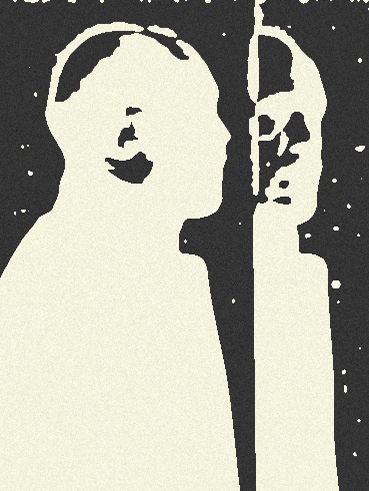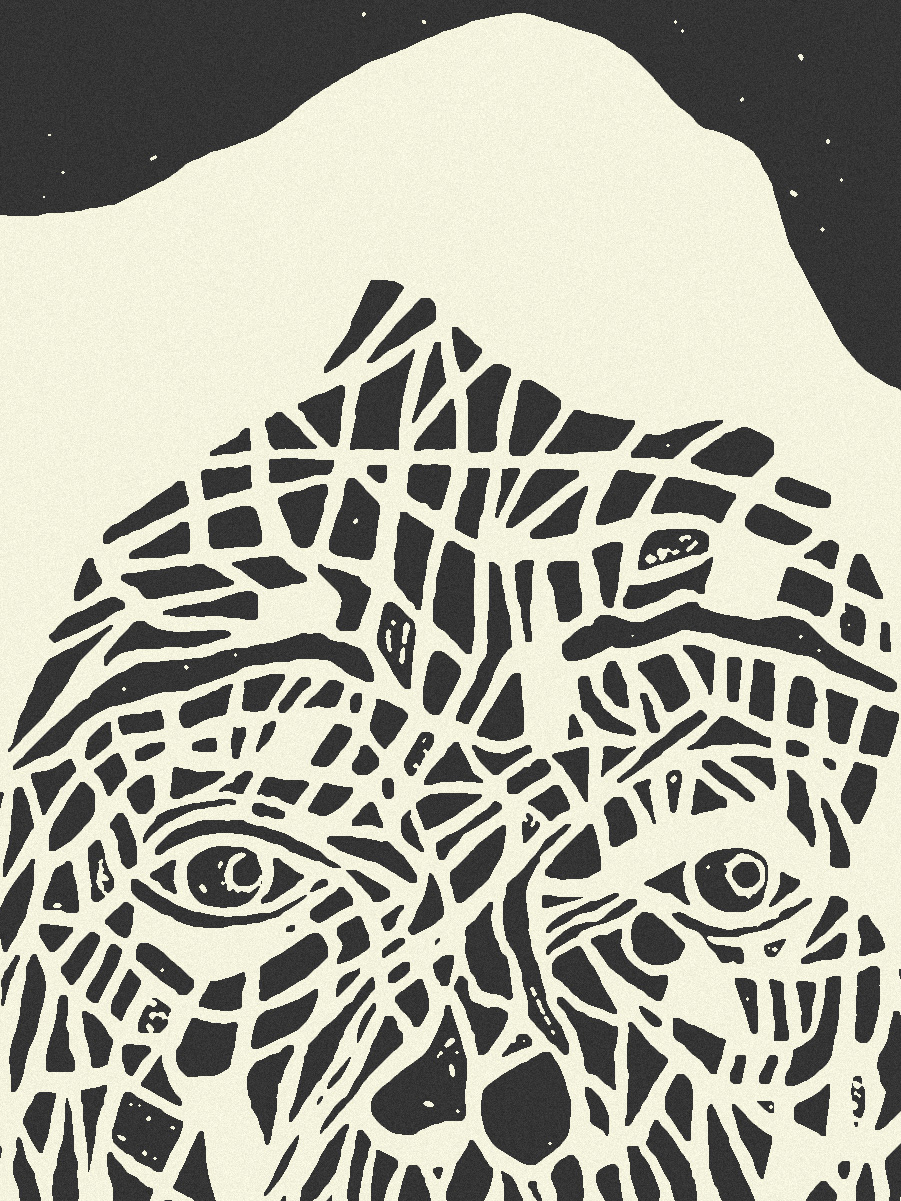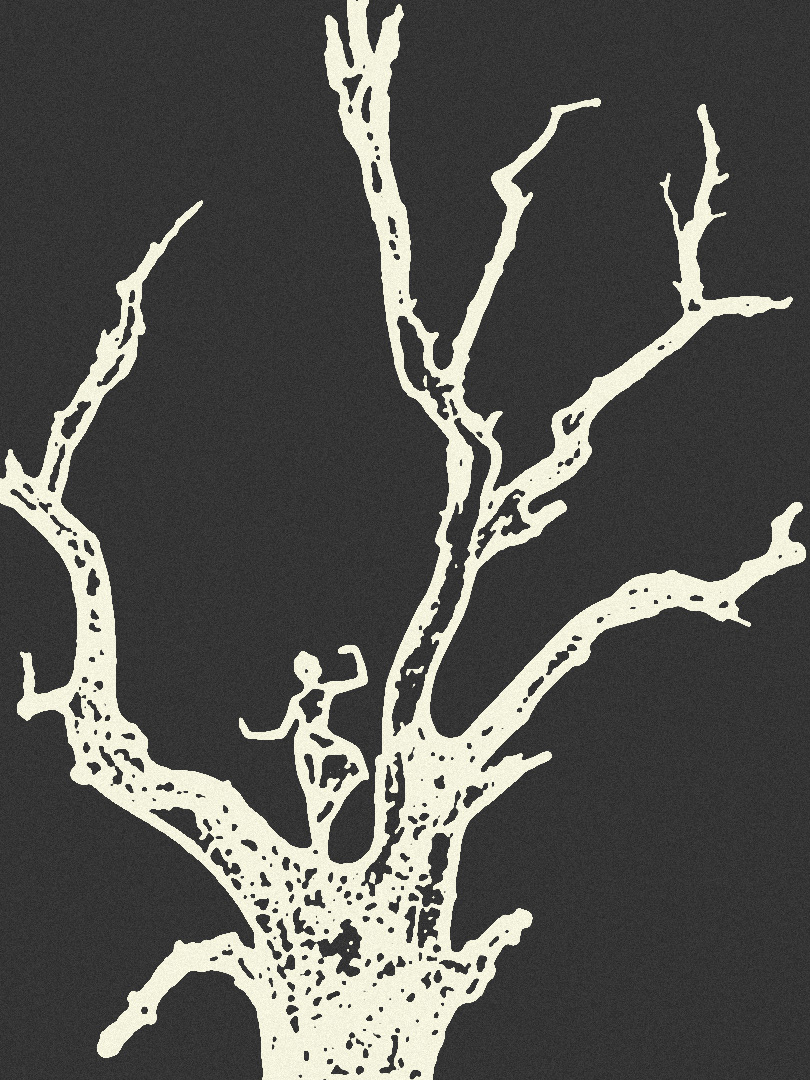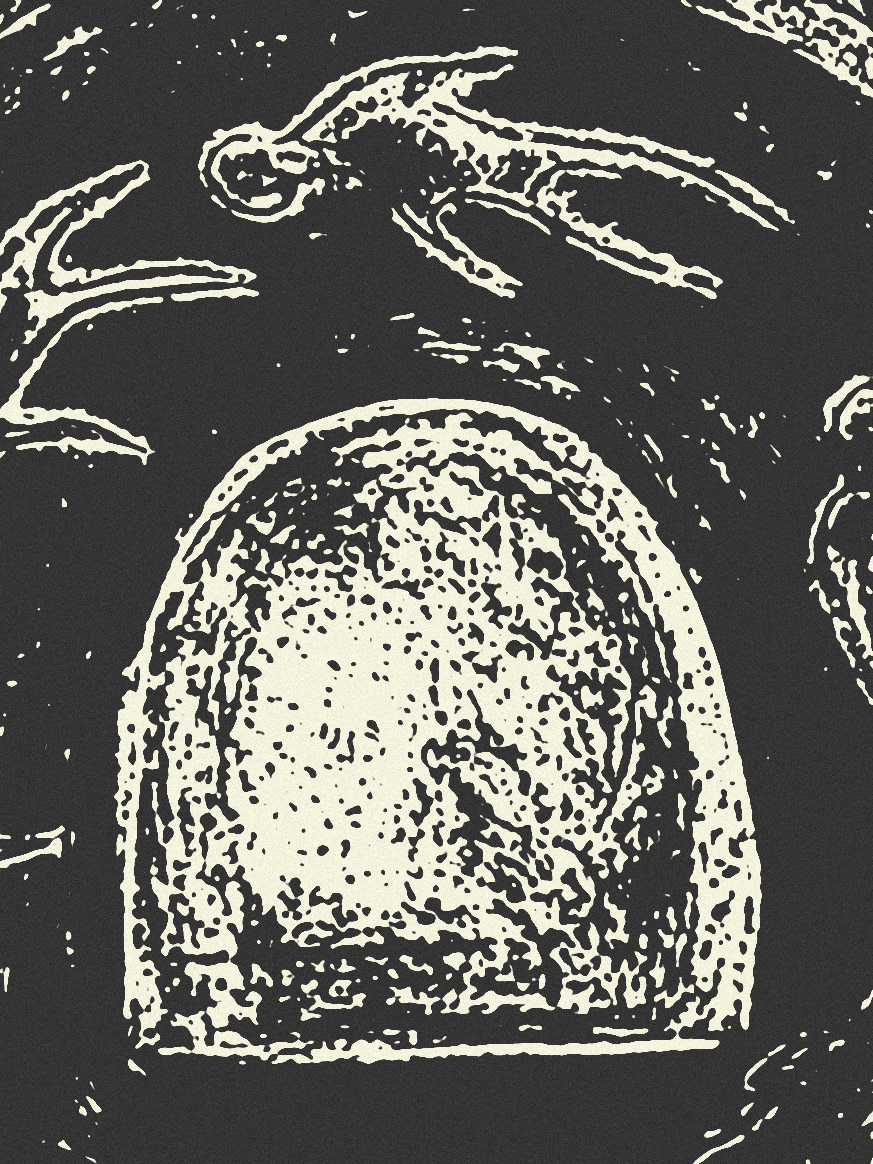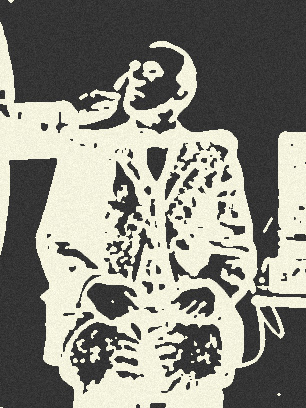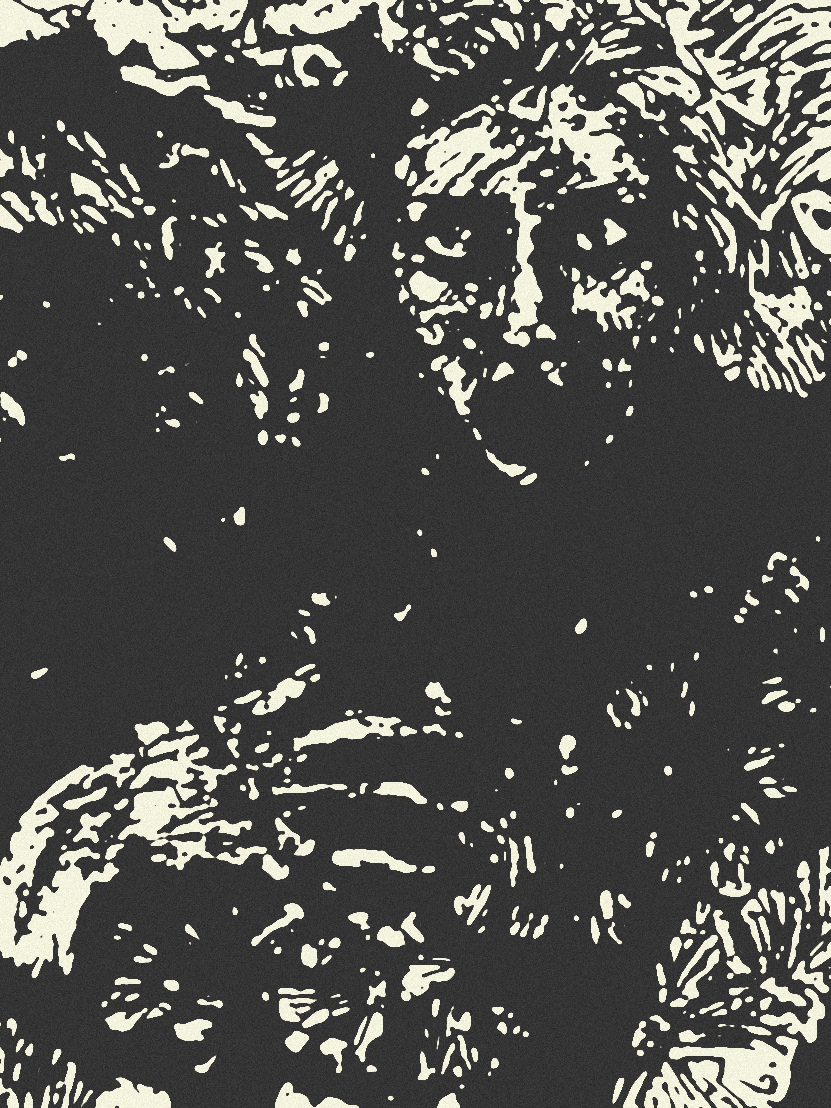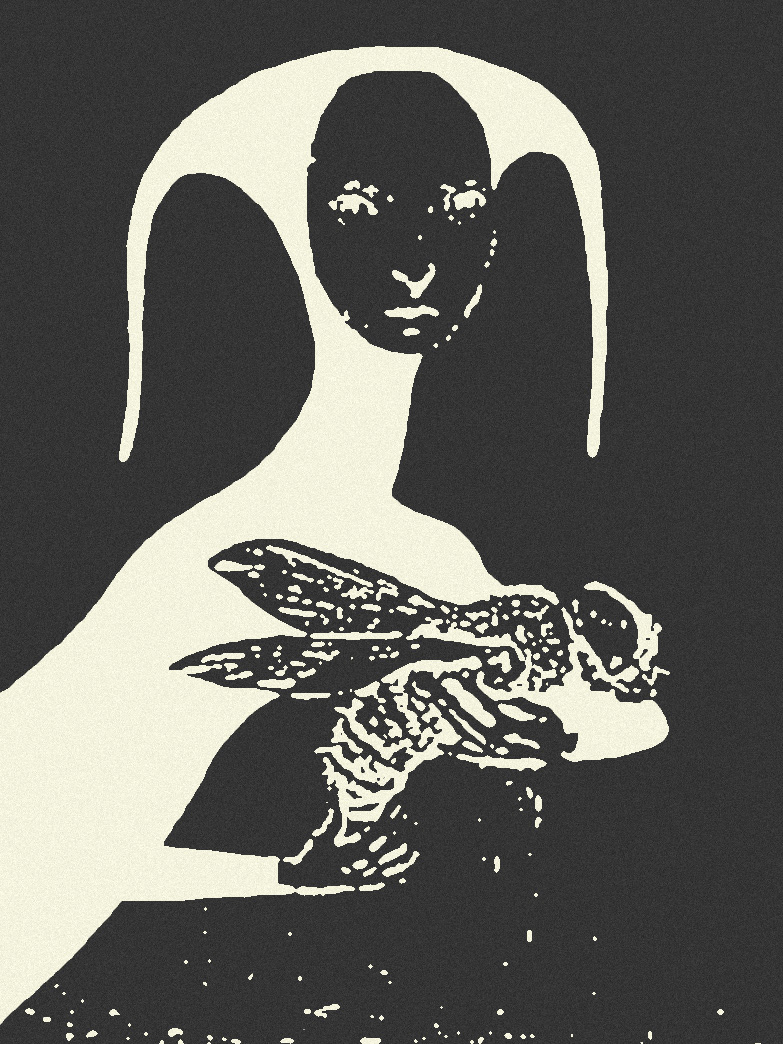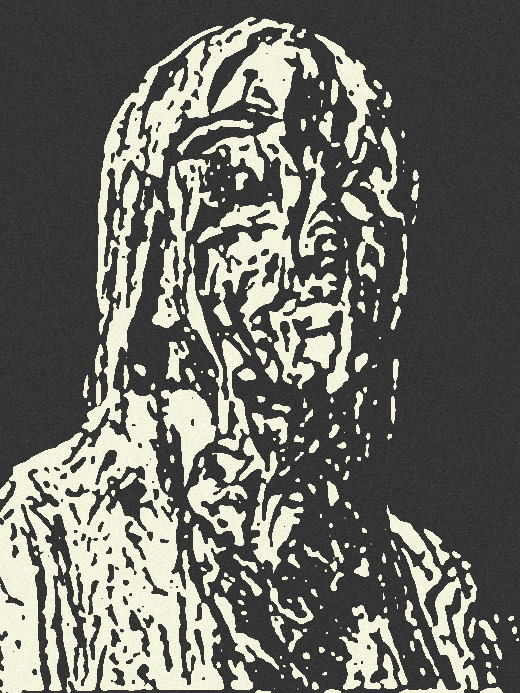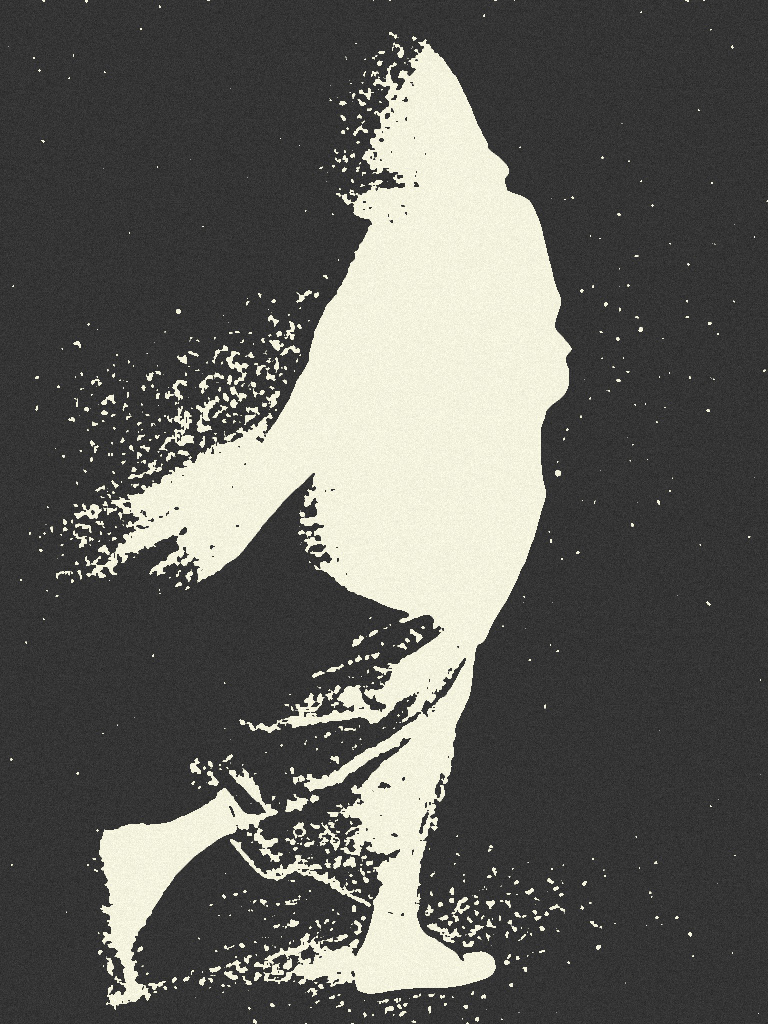✷
Mr. Morton’s shoes, with soles as thin as parchment, were on their last legs, so to speak. A pebble had worked its way beneath his heel, an aggravation in his otherwise orderly existence. He planned, accordingly, to visit the shoe store during his lunch break.
He worked at the Copy Shoppe where the silent ‘e’ provided him with a continuous source of embarrassment. Unfortunately, middle-aged ladies dropping off their bulk printing requests would declare it “very quaint,” which is what the woman in front of him was doing at that moment. He nodded politely before asking if she really wanted the extra apostrophe in “Season’s Greetings from the Anderson’s” on her cards. She blinked as he explained the use of the apostrophe for possession rather than for plurality, her eyes glazing over like the skim of fog on a winter window, at which point Carl, the manager, came over and cleared his throat to indicate that “The customer knows best!” A patent untruth, but what could you do?
Mr. Morgan sealed his lips and ran off one hundred grammatically unsound holiday wishes while irritation simmered in his chest in a most unseasonal way. It simmered until Carl suggested he not make quite so many editorial corrections to the Kost Kutters flyer. Then it burst into a bonfire fit for burning an effigy, preferably of Carl.
It’s possible to consider that Mr. Morgan was not entirely satisfied with his lot at the Copy Shoppe.
However, though he had been there a good many years, he never once contemplated changing his situation. The devil you know, he told himself, is better than the devil you don’t know.
Most days, he would take refuge during his lunch break at the bookstore down the block where quiet reigned supreme and he could browse the travel section undisturbed. Leafing through Fodor’s always calmed him. Perusing Frommer’s was practically a meditation. Mr. Morgan had always wanted to travel in theory, but actually doing so raised the specter of uncomfortable uncertainties. The devil you don’t know, to his way of thinking, was to be avoided.
Today, in consideration of his need for new shoes, he bypassed the bookstore where the plate glass window offered its promise of a new Rick Steves. The shoe store was just across the next intersection and he knew exactly in which aisle the dress shoes resided, and had always resided, since he’d come here as a child with his rather stern father to purchase his very first pair of plain brown dress shoes. Since then, Mr. Morgan had been a regular, if infrequent, customer. Consistency is the backbone of an orderly life, and except for the pebble working its way through the worn sole of his right shoe, Mr. Morgan led an orderly life.
He paused outside the shoe store where an enormous sign advertised a “Going Out of Busness Sale! BOGO!!!” He pursed his lips at the carelessness revealed by the misspelling. He knitted his brow at the exuberance of excess conveyed by the acronym. And it was his long-held conviction that overuse of punctuation would usher in the end times.
He was diverted from addressing his concerns to the green-haired sales clerk by the absence of dress shoes in their accustomed aisle. Instead, a parade of high-end sneakers marched in colorful rows down the two sets of shelves. Mr. Morgan did not wear sneakers, regardless of the orderly precision of their current formation.
Disoriented, he marched past the Converse and Skechers and some kind of discounted rubber extrusion that may or may not have been footwear. In the flickering fluorescents at the back of the store he spotted a lone aisle of dress shoes looking slightly offended by their new environs.
He selected a box containing plain brown dress shoes, size 11, and settled onto the stool with its foot-friendly mirror. As he unlaced his right shoe, a voice from his shoulder said, “Those are ugly.”
A child stood at his side in a plaid raincoat and a pair of green pull-on rain boots, though the day was sunny and mild. He studied Mr. Morgan through eyes greener than his boots. Then he turned and toddled down the aisle, poking a stubby finger at each shoe box on his way. He rounded the corner near the front of the store where plastic clogs flaunted their bright colors at passersby like hookers on a street corner. Here he stopped, looked them up and down with an oddly salacious air for a tot of no more than five years, selected a pair, and stomped back down the aisle holding what appeared to be melted rainbows in his grubby fists. He dropped them at Mr. Morgan’s feet. “These will fit you.”
Technically, they would fit, Mr. Morgan had to admit. The child grasped the concept of spatial dimensions, but his grasp of Mr. Morgan’s personality was rather wide of the mark. He wondered where the child’s keeper was but could hear no other voices to provide direction to a responsible party. The raincoated figure, meanwhile, stood rooted to the spot, watching him with an unnerving air of persistence.
“Err, no thanks?” Mr. Morgan attempted.
The child pointed. “Put them on. Those’ll fit you better.”
Mr. Morgan wouldn’t be caught dead in plastic clogs. He stared at them with the revulsion one might feel for a document in Comic Sans. “That’s nice of you, but...” He found he couldn’t complete his refusal in the face of the child’s hopeful expression. The eyes, which Mr. Morgan now noticed were more of a mossy grey, looked like they might tear up if the little fellow didn’t get his way.
The last thing Mr. Morgan wanted was for the child to cause a scene. And so, with as much dignity as he could muster under the circumstances, he slid his feet into the ludicrous footwear and stood to assess the damage. It looked like he was being sucked into a demented rainbow. He wondered if the child would go away now that he had humiliated the Copy Shoppe employee on his lunch break.
✷
Closing his eyes, he feels the world beneath him tip, and a deep voice at his elbow says, “Now then, them shoes is just the ticket, ain’t they?”
Mr. Morgan opens his eyes and finds he is staring directly at a ham dangling inches from his nose, suspended from a rough-hewn wooden beam. Beside him, a short man in a plaid woolen coat and green leather boots, studies him through mossy green eyes tucked above a full beard. The world tilts further off center, and Mr. Morgan reaches a hand to steady himself on the shoe shelves. Instead, it slips across a greasy wooden counter with a huge cleaver lying athwart a slab of red meat.
He staggers, desperately needing to sit and put his head between his knees, but it seems the little stool is gone, though the melted rainbow clogs still poke out below his trouser cuffs. He’s still in his button-down shirt and the lanyard hanging from his neck reassures him that he is still ‘P. Morgan - for all your copying needs.’
He rolls his eyes back up to the counter with its unsavory display of raw flesh. Panic begins to claw up through his gut. What kind of meat is that?
The small man seems to read his thoughts. “Nah, yore too stringy. Couldn’t get a decent rump roast out of you if I tried.”
Indignation he can’t even begin to voice adds to Mr. Morgan’s confusion.
The man laughs, a sound like gargling. “Just kidding with you. Every time I bring a body through, they think I want to eat them. Bloody ridiculous.”
Almost at a loss for words, Mr. Morgan finally manages, “Where is this?”
“Porthinghamshirebywick Town.”
“Bit redundant isn’t that?” Mr. Morgan recalls the travel books he’s perused so extensively. He’s sure no town on earth sports so many suffixes.
“Oy aye. A town by any other name or all of them together,” says his host. “Can’t help it that the port-hole opened up right in my cousin’s butcher shop. Hecket didn’t even know about it until Grannie Montague disappeared before his eyes. Like to scare him to death, it did. Donno where she got off to. Never came back.”
“Portal?” Mr. Morgan’s voice comes out in a croak. His fingers lock onto the counter for dear life.
“Port-hole,” his host says distinctly. “A hole to the left of that counter yore trying to wring the neck of.”
Mr. Morgan releases his offending grip but is as unsteady as a sailor newly arrived on shore. He bends over and grips the bony solidity of his knees.
“I give you the ticket,” the man says cheerily, “that’d be the shoes in yore case, and the port-hole lets you through.”
“But you were a kid.”
“Temporary measures. The port-hole has a sense of humor.”
“I’m not amused,” Mr. Morgan chokes out.
It’s possible to note that Mr. P. Morgan has not been amused for a good many years. He is less amused than ever now that his insides are threatening to make an appearance on the outside.
“Don’t be losing yore lunch in Hecket’s shop,” his host cautions. “And he’ll be wanting to get back to work, so come along.” He toddles out the door into a fog so thick, Mr. Morton can see nothing but the man’s indistinct shape which he follows with all the alacrity he can muster.
He sees nothing else at all through the fog, though he can smell earth and woodsmoke and just a hint of cheese. A whisper of lavender crosses his path, accompanied by a light-hearted chime of laughter. Someone whistles to a dog. It seems they pass a stable, to judge by the hay and manure featured in the aromatic stew. The world, which is surely the result of some indisposition of the brain from which he will shortly recover, is a noisy, odorous blur. He can make out no distinct objects, nothing resembling a building or shopfront, or better yet, a road sign to provide direction.
If he loses sight of his guide, he realizes, he’ll wander in this purgatory of grey until he dies. This terrifying thought occurs to him just as his guide confidently locates a door past the stable and throws it open. A solid brick of honey-colored light shoots out and slams into the wall of fog with an almost audible impact. “This is my stop,” the man says.
“Wait. What about me?”
“What about you?”
“What did you get me for? Why am I here?”
“Beats me. Yore life was in a jam. You needed new shoes. Who’s to say?”
“That makes no sense.”
“Take it or leave it. You weren’t going anywhere where you were, were you?”
The sentence confuses Mr. Morgan. He needs to return to his proper life where he knew what was what. A life spent copying predictably misspelled posters in bulk. A life where the only interruption to his routine could be found in the occasional need to buy new shoes.
It's true, he hadn’t been going anywhere in his life, if one wanted to parse the sentence in the strictest sense. But he’d always wanted to go somewhere, which is practically the same thing. He’d thought about it. Figured he’d go somewhere once he, once he, once he... His thoughts stutter. Once he what?
His thoughts deflate. He touches a hand to his chest where his lanyard reminds him that he is ‘P. Morgan – for all your copying needs.’ He grips the badge so tightly, the rigid plastic digs into his palm. Everything feels real, but it can’t possibly be real. Can it?
“So, this what death is like,” he thinks, only he must have said it out loud because the little man snorts.
“Do you think yore dead? Like that, body and all?”
Mr. Morgan’s mind skirts around the question but then circles back to it. He visualizes his body crumpled against the Clarke’s and Florsheim’s while the green-haired clerk shakes his shoulder and shouts ‘Sir!’ in the desperate hope the man in the colored clogs hasn’t died during his shift, that he won’t have to call emergency services and deal with all the subsequent paperwork.
Or perhaps the clerk only finds a pair of plain brown dress shoes on the floor beside the little bench, studying their own reflection in the shoe-friendly mirror.
Mr. Morgan blinks into the fog as he considers these possibilities. “I’m not going back, am I?” he says after a bit.
“Not in this life,” his unhelpful guide answers.
“What’s the mission, then?”
“How do you mean?”
“What is it you brought me here for? Like...erm...my quest?”
His guide rolls his eyes, sage green above the beard. “Quest! Now that would be rich, if every one of you blighters didn’t say the same thing. No quest.”
“I’m not here for some purpose?”
With a slow stroke of his beard, the man shakes his head. “My mission was to get you. I can’t tell you what your mission is.”
Mr. Morgan is beginning to feel cheated. If he’s going to be abducted from a shoe store on his lunch break, at least someone should give him directions. “But what does the port-hole want?”
“It looks for empty places in the world.”
“The shoe store wasn’t empty. I was there.”
“Empty places, empty people, it can’t tell the difference.”
Mr. Morgan knows he should be offended. Deeply offended. His chest hurts. His voice comes out in a wheeze when he finally says, “So I can’t go back?”
“Nope. But you might try going forward.”
It’s possible to consider that Mr. Morgan had never spent much time looking forward. Now, he peers into the fog, his fingers still wrapped around his badge in a death grip. For a moment, he thinks he sees something, but it turns out to be a lazy eddy of more fog. The only thing with definite form is the tantalizing block of yellow light still parked in the door the other man had opened. “Does the fog ever lift?”
“There isn’t no fog. That’s you. You been walking in the fog all your life.” With that, his kidnapper hops through the door and slams it shut behind him. Mr. Morgan can briefly hear his footsteps through the panel before they fade into silence.
He stands alone waiting, something he’s rather good at. After a bit, he stops waiting and starts looking. Quite a bit of time passes before the fog begins to thin and fray. A soft light slips through the shifting tatters of grey. A little boy suddenly appears, running down a lane rolling a hoop. A woman weaves at a loom inside a cottage, humming to herself. A man leans against a Rolls Royce buffing its every smudge. A pair of elderly ladies do yoga in a town square. Layer upon layer unpeels before his eyes as the fog shreds into clarity.
It is a cacophony of lives all around him, a wild chaos of chance, a jumble sale of infinite possibilities at the ends of the world.
Except for a single inky smudge in the air directly in front of him.
The door opens again and his kidnapper sticks his head out long enough to shout, “I forgot to tell you. Once you see what’s there, then there is where you go.” He shuts the door again.
Mr. Morgan wonders how long it will take for him to see what’s there.
He wonders why he can’t see what’s there, and then he wonders what he could see if he could see what’s there.
He wonders for the last time what the green-haired sales clerk will find in the narrow aisle where the business shoes are lined up waiting for someone else’s feet. Nothing at all? Or the body of a man who never lived?
✷
It will be a few moments, but eventually he will gasp in surprise, or pleasure, or horror. Who’s to say? One rainbow colored clog at a time, Mr. Morgan will take a step, and then another, and then he will be running forward in his improbable clogs.
P. Morgan will finally be going places.
✷
Laurel Hanson is a writer from Maine who believes in the possibilities of life, no matter how improbable. She's worked in a school, theater, library, diner, and once ran an antique inn that was definitely haunted. Though she's travelled the world extensively, she has not yet made inroads into the world of social media.

